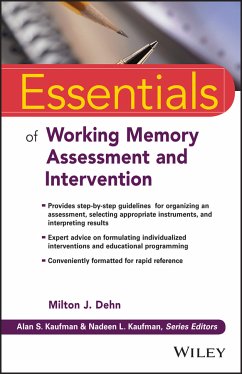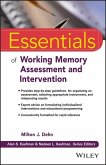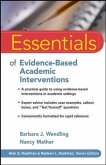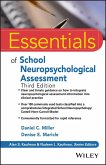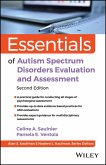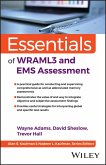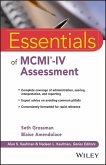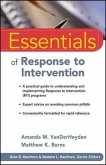Improve academic learning outcomes with accurate working memory assessment and evidence-based interventions
Essentials of Working Memory Assessment and Intervention is an accessible, practical guide to accurately and efficiently assessing working memory. This comprehensive resource explains the theories of working memory, with an emphasis on cognitive load theory, and provides step-by-step guidelines for organizing a cross-battery assessment, selecting appropriate instruments, interpreting results, and formulating individualized interventions and educational programming. In-depth case studies illustrate typical profiles found in children and adolescents with working memory deficits, and the companion CD features worksheets, testing charts, and other useful resources. Reader-friendly design elements including Rapid Reference, Caution, and Don't Forget boxes, and practice questions, bullet points, and icons make this guide useful for both study and desk reference.
Working memory deficits are the main reason why students with disabilities are unable to successfully respond to regular education interventions. Given the strong relationship between working memory and all areas of academic learning, a deeper understanding of working memory and the related assessments and interventions can facilitate greater achievement. This book helps readers:
By examining the critical functions of working memory and its relationship with specific learning disabilities, then providing strategies for assessment and detailed intervention guidance, this book helps educatorsand professionals guide their students and clients toward improved cognitive functioning, , reduced frustration, and improved academic performance . For those seeking a practical approach to working memory, Essentials of Working Memory Assessment and Intervention provides the tools and information they need.
Hinweis: Dieser Artikel kann nur an eine deutsche Lieferadresse ausgeliefert werden.
Essentials of Working Memory Assessment and Intervention is an accessible, practical guide to accurately and efficiently assessing working memory. This comprehensive resource explains the theories of working memory, with an emphasis on cognitive load theory, and provides step-by-step guidelines for organizing a cross-battery assessment, selecting appropriate instruments, interpreting results, and formulating individualized interventions and educational programming. In-depth case studies illustrate typical profiles found in children and adolescents with working memory deficits, and the companion CD features worksheets, testing charts, and other useful resources. Reader-friendly design elements including Rapid Reference, Caution, and Don't Forget boxes, and practice questions, bullet points, and icons make this guide useful for both study and desk reference.
Working memory deficits are the main reason why students with disabilities are unable to successfully respond to regular education interventions. Given the strong relationship between working memory and all areas of academic learning, a deeper understanding of working memory and the related assessments and interventions can facilitate greater achievement. This book helps readers:
- Understand the development and neuroanatomy of working memory
- Learn techniques for improving working memory in the classroom
- Examine strategies for brain-based working memory training
- Effectively utilize working memory assessment measures
By examining the critical functions of working memory and its relationship with specific learning disabilities, then providing strategies for assessment and detailed intervention guidance, this book helps educatorsand professionals guide their students and clients toward improved cognitive functioning, , reduced frustration, and improved academic performance . For those seeking a practical approach to working memory, Essentials of Working Memory Assessment and Intervention provides the tools and information they need.
Dieser Download kann aus rechtlichen Gründen nur mit Rechnungsadresse in D ausgeliefert werden.
Hinweis: Dieser Artikel kann nur an eine deutsche Lieferadresse ausgeliefert werden.

